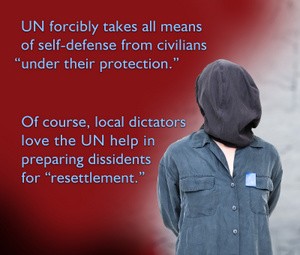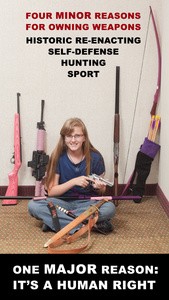Secretary General Ban KI-moon has said that the award of the Nobel Peace Prize to Liu Xiaobo of China is a recognition of the growing international consensus for improving human rights practices and culture around the world, according to a statement issued by his spokesman Martin Nesirky in New York.
Mr Nesirky noted that the Secretary-General has consistently emphasised the importance of human rights along with development, peace and security as the three main pillars of the work of the UN. He said that, in the past, China has achieved remarkable economic advances, lifted millions out of poverty, broadened political participation and steadily joined the international mainstream in its adherence to recognised human rights instruments and practices.
Mr Ban expressed the hope that differences on this decision will not detract from advancement of the human rights agenda globally or the high prestige and inspirational power of the award, the statement added.
Gender equality: The Secretary-General has in his report called for equal participation by women in post-conflict peace building. He said much remains to be done to ensure that they play their part in shoring up peace 10 years after the adoption of a Security Council resolution."Now is the time for systematic, focused and sustained action, backed by resources and commitments on the part of all stakeholders national and international, public and private, women and men," he wrote.
Mr Ban laid out a seven-point action plan. These include measures to ensure that women are engaged in all peace talks and post-conflict planning, including donor conferences, that adequate financing is provided to address women's needs and advance gender equality, and that women participate in post-conflict governance as elected representatives or decision makers and also through special measures such as quotas.
The plan also called for rule-of-law initiatives to encourage women's participation in seeking redress for injustices committed against them and for prioritising women's involvement in economic recovery such as employment-creation schemes, community-development programmes and delivery of front-line services.
Food for Pakistan: The UN Office for the Coordination of Humanitarian Affairs has reported that UN agencies and partners have delivered 169,000 metric tons of food in Pakistan since the crisis caused by the floods. The OCHA has said in a press release that eight million people are being targeted for food assistance in October, and some 500,000 people received monthly rations this weekThe UN and its partners have also provided medicines to cover health needs of 5.15 million people, and clean water for 3.7 million people, OCHA said. More than 260,000 tents and 413,000 tarpaulins have now been distributed, serving the needs of some 467,000 households, it added.
OCHA added that the province of Sindh remains one of the hardest-hit areas, with one million people in need. A large number of people continue to depend on life-saving assistance. However, access to remote areas is improving.
Iraqi refugees: The world refugee agency in a recent survey has stated that most of the Iraqi refugees living in Syria are reluctant to permanently return to their home country. The agency indicated that half of the refugees surveyed cited political uncertainty as a reason for not wanting to repatriate, while others blamed unstable security conditions, poor educational opportunities and housing shortages.
Some 500 families took part in the poll carried out on the Al Waleed border crossing between Syria and Iraq between July and August, UNHCR said in a press release. The vast majority of Iraqis crossing the border into Iraq said it was for a short trip only to visit family members, check conditions on the ground, obtain documentation or check on property.
UNHCR had made a similar survey on the Iraq-Jordan border among 350 families and found that none were returning to Iraq permanently, citing similar reasons. Syria is home to the largest number of Iraqi refugees in the region, with the UNHCR office in the country having registered over 290,000 Iraqis since the war begun.
According to government figures, there are more than one million Iraqi refugees in Syria, with some 130,000 receiving help from UNHCR and the WFP. Some refugees have officially been resettled and others have departed to third countries by other means. Some have returned to Iraq, in a few cases with limited UNHCR assistance, the survey noted.
Kala-azar in Sudan: The world health agency has reported that over 6,300 cases of visceral leishmaniasis, a parasitic disease known as kala-azar, have been recorded in south Sudan during the past year. It said it required $700,000 to combat the recurring outbreaks of the illness in the region.
WHO said it is supporting the health authorities and other health sector partners by providing and distributing medicines and laboratory diagnosis materials to five health facilities in Jonglei and Upper Nile states where those infected are being treated. The agency is helping train health personnel on case management, laboratory diagnosis, and conducting active case searching and surveillance.
WHO said that more than 300 people have died in the latest outbreak of kala-azar. It has put the case fatality rate at 4.7 per cent, adding that the number of cases is over six times higher compared to 2007 when 758 cases were recorded, and 2008 when there were 582 cases.
War crimes: The International Criminal Tribunal for Rwanda president, Judge Dennis Byron, has stressed that the court is making good progress in completing their work, but their efforts are being hampered by a lack of resources and the departure of its experienced staff. "In all our efforts, we are facing one main stumbling block: the staffing situation," Judge Dennis Byron told the General Assembly, as he presented the annual report of the court.
"We continue to lose many of our best and most experienced staff members, often to other institutions in the same field where they can obtain longer-term contracts," he said. He noted that 167 staff members left the tribunal between July 2009 and June 2010.
Judge Byron stressed that the tribunal's staff is an indispensable element of completing the work. The tribunal was created in November 1994 to prosecute people responsible for genocide and other serious violations of international humanitarian law committed in Rwanda that year. Some 800,000 Tutsis and moderate Hutus were murdered, mostly by machete, in 100 days.
Judge Byron added that judgment delivery in all the cases at trial level is expected before the end of 2011.












